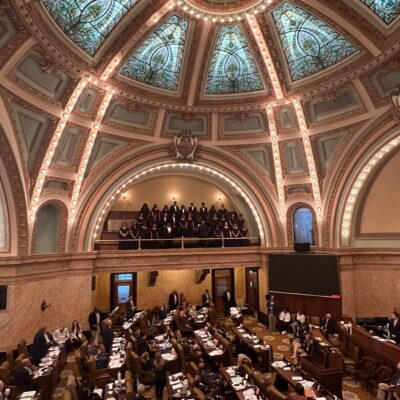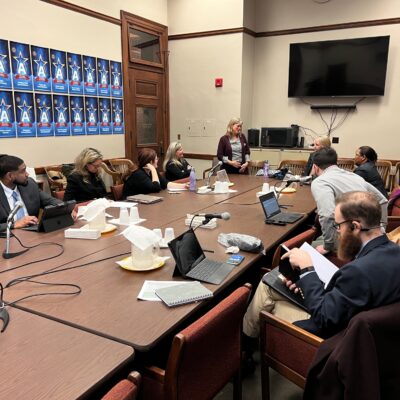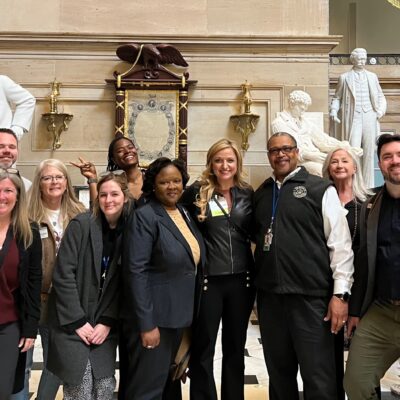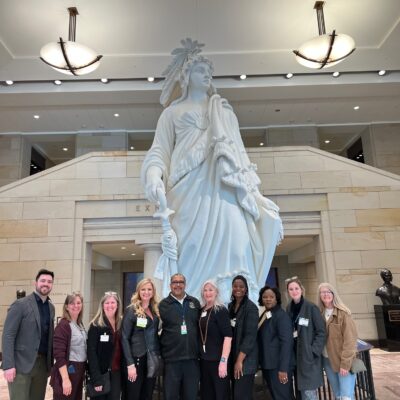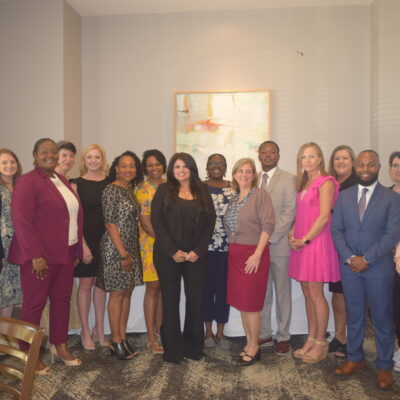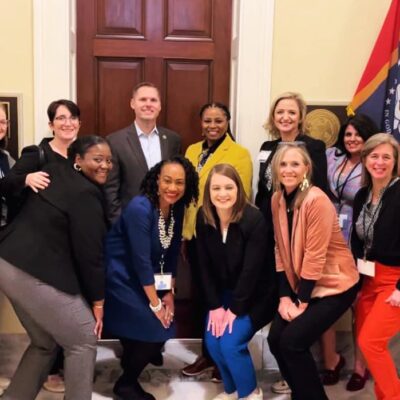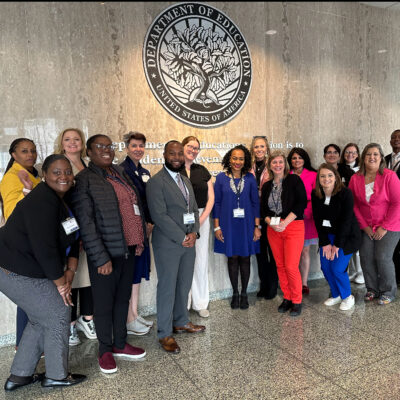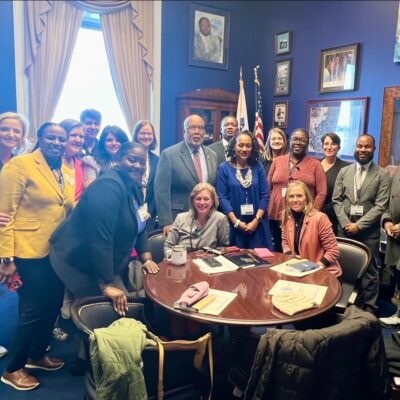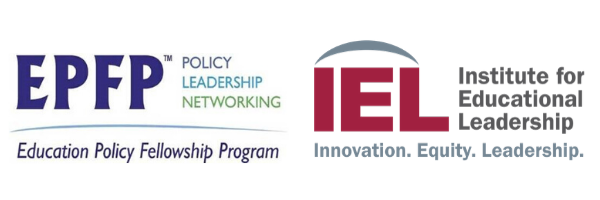
- Program Overview
- Program Schedule
- Frequently Asked Questions
- Program Coordinators
- Current Fellows
- Contact Us
OVERVIEW
The Education Policy Fellowship Program (EPFP™), a program of the Institute for Educational Leadership (IEL), is a nationally recognized fellowship program that engages a diverse and collaborative community of strategic leaders to promote equitable education policy. The Mississippi Education Policy Fellowship Program (MS-EPFP) site is hosted in partnership with IEL.
For 25 years, the MS-EPFP has been bringing individuals together to advance equitable policies for Mississippi’s students. Housed at the Social Science Research Center at MSU, MS-EPFP creates meaningful opportunities for Fellows to come together to learn about education policy.
MS-EPFP Fellows are professionals who have a direct interest in education policy from early childhood through higher education and workforce development. This includes administrators, educators and higher education professionals as well as individuals from non-profit, community-based, and business organizations and social service agencies.
Over a eight-month commitment, Fellows concentrate on three program strands: policy, leadership, and networking.
Through program activities, Fellows:
- develop deeper understanding of current local, state, and national education policy design and implementation
- learn about rural education contexts and the unique policy needs of rural educational settings, like those in most of Mississippi
- build knowledge and skills to engage in effective advocacy, including the skills to engage with the people and institutions that shape policy
- strengthen leadership skills and build capacity to work in collaborative settings
- build networks of diverse professionals to advance their work and the work of education advocacy.
The Mississippi Education Policy Fellowship Program (EPFP) requires a significant commitment of time and energy. Participation involves monthly in person meetings from May 2025 to April 2026 and attendance at the Washington Policy Seminar in spring 2026. The program tuition, as well as travel costs for the in-person meetings and the trip to DC for the Washington Policy Seminar, are typically paid by the Fellow’s sponsor but may also be paid by the individual. With the understanding that maximum benefits are achieved through full participation in all meetings and the national seminar, the fellow and the fellow’s sponsor (if applicable) agree that the fellow will participate fully in the program. More than two absences from meetings and events listed as “core events” and/or failure to attend the Washington Policy Seminar may result in dismissal from the program.
2025-26 Calendar coming soon.
- What is MS-EPFP?
- MS-EPFP is a eight-month program housed at Mississippi State University, which was developed in partnership with the Institute for Educational Leadership (IEL) in Washington, D.C. MS-EPFP brings together education leaders and stakeholders from around the state to discuss education policy and cultivate a statewide and national network of education policy leaders.
- Who should participate in MS-EPFP?
- The program is available to professionals interested in education policy and advocacy. The program is particularly targeted at leaders in the context of education and human services. Past MS-EPFP Fellows include school and district leaders, educators, higher education and community college faculty, non-profit leaders, social service agency leaders, business leaders, and community members.
- What are the requirements?
- Fellows commit eight months to an intensive professional development experience concentrated on three program strands: policy, leadership, and networking. They attend monthly sessions to deepen their knowledge of education policy but remain in their full-time positions and use their work environment as the context for examining important leadership and policy issues.
- How do Fellows benefit?
- Fellows learn about specific education policy issues, policy-making and implementation processes, the intersections of local, state, and national policies, and how effective leaders function in the education policy environment. Participation in MS-EPFP opens doors for Fellows to network and collaborate with state and national education leaders. Upon program completion, Fellows gain access to a rich national alumni network. The MS-EPFP program focuses on rural education contexts and implications for policy and advocacy. All but a handful of Mississippi’s school districts are classified as rural by federal guidelines, and our rural context impacts state and national policymaking for everything from college attendance, the role of the school in the community, workforce preparation, teacher shortages, and more. These issues are discussed with a focus on opportunity for rural students from early childhood through higher education.
- How does Mississippi benefit?
- With the implementation of the fellowship programming, the MS-EPFP cultivates strategic leaders who have the capacity to advocate for and create sound public policy to improve education. Ultimately, MS-EPFP seeks to improve the chances of Mississippians to succeed.
- What is the Fellowship programming like?
- MS-EPFP is comprised of site-level activities and national programming. MS-EPFP meets one day a month from September to April. MS-EPFP also includes a multi-day national education policy conference, known as the Washington Policy Seminar (WPS), in person in Washington, DC in Spring 2026. Fellows participate in engaging meetings that include opportunities to meet state and national elected officials and hear from nationally recognized guest speakers who are impacting education policy. Fellows build leadership and advocacy skills through a variety of learning experiences and develop relationships with other state education leaders to support their future work.
- How do I apply?
- You can pre-apply for the 2025-26 cohort, pre-application.
- Completing the pre-application does not commit you to the program participation, but shares your interest.
- What is the financial investment?
- The program tuition for the Mississippi Education Policy Fellowship Program is $2,450. There are also additional expenses for travel and lodging for in-person MS-EPFP meetings and the Washington Policy Seminar (WPS). The EPFP program fee is comprised of the state site and national programming.
Devon Brenner (EPFP ’04-05)
Director, Social Science Research Center, and Professor, Curriculum, Instruction and Special Education, Mississippi State University
 Devon Brenner is director of the Social Science Research Center at Mississippi State University and a professor of teacher education in the MSU College of Education. Brenner was previously an Education Policy Fellow in the office of U.S. Senator Thad Cochran in Washington D.C. and an assistant vice president in the MSU Office of Research and Economic Development. Brenner is currently president-elect of the National Rural Education Association and policy brief editor of The Rural Educator, an academic journal about rural education. Her research focuses on rural teacher recruitment and retention and rural education policy and she is co-author of the textbook Teaching in Rural Places: Thriving in Classrooms, Schools, and Communities. Brenner has served as co-coordinator of the Mississippi EPFP program since 2016.
Devon Brenner is director of the Social Science Research Center at Mississippi State University and a professor of teacher education in the MSU College of Education. Brenner was previously an Education Policy Fellow in the office of U.S. Senator Thad Cochran in Washington D.C. and an assistant vice president in the MSU Office of Research and Economic Development. Brenner is currently president-elect of the National Rural Education Association and policy brief editor of The Rural Educator, an academic journal about rural education. Her research focuses on rural teacher recruitment and retention and rural education policy and she is co-author of the textbook Teaching in Rural Places: Thriving in Classrooms, Schools, and Communities. Brenner has served as co-coordinator of the Mississippi EPFP program since 2016.
Amanda Tullos (EPFP ’21-22)
Project Manager, Mississippi State University Social Science Research Center
 Amanda Tullos is a project manager at the Social Science Research Center at Mississippi State University (MSU). Throughout her career, Tullos has worked with students, teachers, parents, and community partners to strengthen educational opportunities in Mississippi at the school, district, and state levels. Prior to this role, Tullos served as Director of the Partnership School and Education Liaison in the Office of Research and Economic Development at MSU. Tullos has also served as the Starkville Oktibbeha School District’s community and parent liaison and as literacy curriculum and intervention specialist. From 2014-2017, she was a project manager at MSU’s Research and Curriculum Unit, overseeing efforts with the Mississippi Department of Education in secondary education, special education, school improvement, and work-based learning. In this role, she served districts and educators throughout the state and developed a passion for education policy. Before moving to Starkville, she was an administrator and interventionist in the Clinton Public School District and began her career in education teaching in New Orleans.
Amanda Tullos is a project manager at the Social Science Research Center at Mississippi State University (MSU). Throughout her career, Tullos has worked with students, teachers, parents, and community partners to strengthen educational opportunities in Mississippi at the school, district, and state levels. Prior to this role, Tullos served as Director of the Partnership School and Education Liaison in the Office of Research and Economic Development at MSU. Tullos has also served as the Starkville Oktibbeha School District’s community and parent liaison and as literacy curriculum and intervention specialist. From 2014-2017, she was a project manager at MSU’s Research and Curriculum Unit, overseeing efforts with the Mississippi Department of Education in secondary education, special education, school improvement, and work-based learning. In this role, she served districts and educators throughout the state and developed a passion for education policy. Before moving to Starkville, she was an administrator and interventionist in the Clinton Public School District and began her career in education teaching in New Orleans.
2024-25 Fellows
| Name | Organization | Position |
| Erin Eaton | Mississippi Community College Board | Assistant Executive Director for Academic and Student Affairs |
| Kristen Fondren | Aberdeen School District | Alternative School Learning Coordinator |
| Anna Guntharp | Starkville Oktibbeha Consolidated School District | Assistant Superintendent |
| Drew Hall | University of Mississippi- Office of Pre-College Programs | Coordinator of Admissions and Advising |
| Karen Harness | Madison County School District, Ann Smith Elementary | Principal |
| Vicki Leach | Mississippi State University | Instructor |
| Romeka Mack | Mississippi Achievement School District/Yazoo City Municipal School District | Coordinator of Professional Learning, Growth Management, and Instructional Technology |
| Courtney McInnis | Jones College | Navigator |
| Alisha Milam | Mississippi State University-Meridian | Assistant Clinical Professor |
| Synthia Ming | Mississippi State University | Professional Learning Manager |
| Shawana Powell | Mississippi Achievement School District | Compliance and Student Support Coordinator |
| Raymond Rideout | Madison County Schools/Germantown Middle School | Assistant Principal |
| Birdette Scott | Alabama State University | PhD Student, Educational Leadership, Policy, & Law and 2012 Mississippi State Teacher of the Year |
| Jennifer Smith | Mississippi State University Advanced Composites Institute | Program Manager |
| Ginger Tedder | The Mississippi School for Mathematics and Science | Executive Director |
| Jailand Williams | Woodward Hines Education Foundation – Get2College | North MS Assistant Director & College Counselor |
| LaMarlon Wilson | Mississippi Schools for the Deaf and the Blind | Superintendent |
| Kenya Wolff | University of Mississippi | Associate Professor of Early Childhood Education, Early Childhood Education Undergraduate Program Coordinator & Co-Director The Graduate Center for the Study of Early Learning |
Phone: 662-325-7127
Email: msepfp@ssrc.msstate.edu
Mailing Address: P.O. Box 5287
Mississippi State, MS 39762
